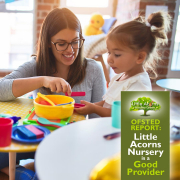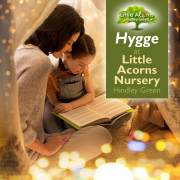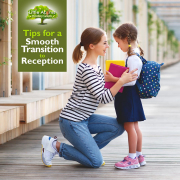The Importance of Play in Early Childhood
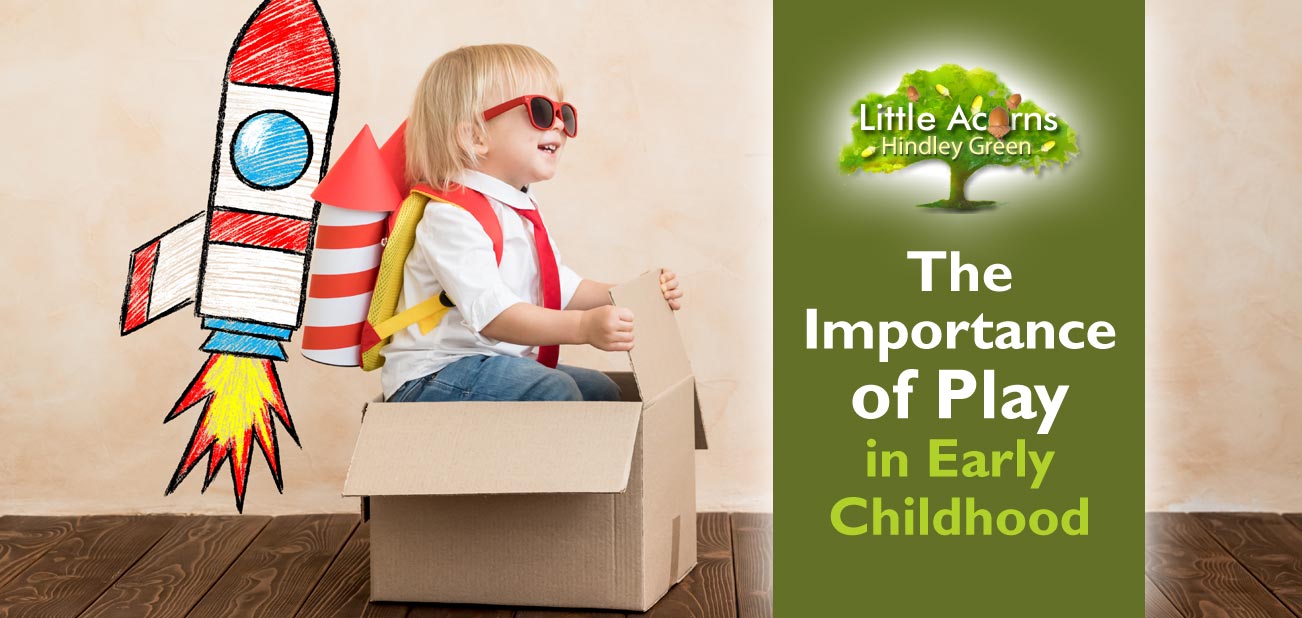
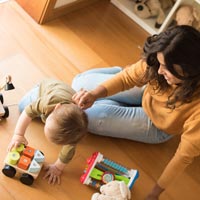 One of the most widely accepted truths among professionals involved in ‘early years’ education is that play is incredibly important to children. That’s not just because it comes naturally to them and is fun; play is the key tool through which children learn about themselves, each other, and the world around them. Indeed, the act of playing benefits children in a wide array of profoundly beneficial ways, including socially, mentally, physically, and emotionally. With that in mind, today’s post highlights some of the many benefits of play to children, particularly in their early years. So, if you have a child under five, take a look and you’ll soon see why encouraging your little one to play in a variety of ways will bring out the very best in them and help set them up for life.
One of the most widely accepted truths among professionals involved in ‘early years’ education is that play is incredibly important to children. That’s not just because it comes naturally to them and is fun; play is the key tool through which children learn about themselves, each other, and the world around them. Indeed, the act of playing benefits children in a wide array of profoundly beneficial ways, including socially, mentally, physically, and emotionally. With that in mind, today’s post highlights some of the many benefits of play to children, particularly in their early years. So, if you have a child under five, take a look and you’ll soon see why encouraging your little one to play in a variety of ways will bring out the very best in them and help set them up for life.
“Play is essential to development because it contributes to the cognitive, physical, social, and emotional well-being of children” (Paediatrics Journal)
Physical Benefits of Play
Motor Skills
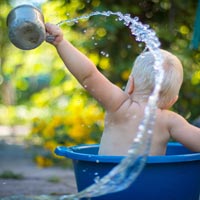 One of the most obvious things about children’s play is that often it gets them exerting themselves physically, as they run, climb, jump, make, create, and construct. Such activities help them to master gross and fine motor skills, balance, movement, and coordination. All such skills are enhanced significantly through play and are a fundamental building block of children’s development.
One of the most obvious things about children’s play is that often it gets them exerting themselves physically, as they run, climb, jump, make, create, and construct. Such activities help them to master gross and fine motor skills, balance, movement, and coordination. All such skills are enhanced significantly through play and are a fundamental building block of children’s development.
Fine-Tuning the Senses
Play also naturally gives children’s senses a workout. As such, babies and children under five will understand more deeply the relationship between what they sense during play and the physical world. Senses including touch, smell, hearing, sight, taste, and proprioception (body awareness) will all therefore become more honed as little ones play.
Strength & Fitness
As children play actively, strength, stamina, and fitness will also naturally improve. These are fundamental developmental requirements that will help children thrive physically as they grow older.
Cognitive Benefits of Play
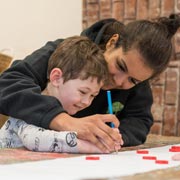 Right from an early age, the act of playing helps in the development of young minds and even contributes to the rapid growth of new connections in the brain. This is true even for babies, whose key tool to learn about the world is through play, as they explore with their senses as well as by reaching out to grasp toys and objects around them.
Right from an early age, the act of playing helps in the development of young minds and even contributes to the rapid growth of new connections in the brain. This is true even for babies, whose key tool to learn about the world is through play, as they explore with their senses as well as by reaching out to grasp toys and objects around them.
Greater Creativity
Play is a superb way of boosting children’s imaginations and creativity. As they play, whether alone or with others, they will naturally imagine scenarios, role-play, find solutions to challenges, create, build, design, and invent. Such undertakings will exercise their developing brains to generate better creative skills, boost their imaginations, and help them realise new possibilities. What’s more, doing so will also be immense fun!
New Knowledge Through Natural Discovery
Play will inevitably lead to discoveries that children were previously unaware of. What may seem commonplace and normal to adults may be a new discovery to a child. For example, how gravity affects objects, how water turns to ice in the cold, how heat melts sugar, how cooking transforms dough into bread, and so on. All such things are new to a child at some point in their playful youth, and it’s often through play that such new facts, properties, reactions, and the wonders of cause and effect are first discovered. Play teaches children so much!
Enhancements to Maths & Science Skills
Playing as a child will invariably lead to activities which involve elements of science, mathematics and maths language. Whether sharing items equally between friends, adding building blocks to a tower, experimenting with liquid or sand volumes, measuring ingredients or the size of construction components, playing will involve maths and science properties at various points. Such opportunities will help children understand such concepts in the most natural of ways – during play.
Social Benefits of Play
There is a wide range of ways children can benefit socially through play.
Communication & Language
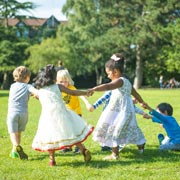 Whether playing with peers or with parents, the need to gradually master communication and language is imperative. Play helps that to happen in the most natural of ways. All the time they’re playing, children are naturally communicating, picking up new vocabulary, learning new phrases, getting to grips with grammar, and so on. Play is indeed a wonderful facilitator of communication and language.
Whether playing with peers or with parents, the need to gradually master communication and language is imperative. Play helps that to happen in the most natural of ways. All the time they’re playing, children are naturally communicating, picking up new vocabulary, learning new phrases, getting to grips with grammar, and so on. Play is indeed a wonderful facilitator of communication and language.
“Children who engage in pretend play with caregivers have more advanced language skills, including a richer vocabulary and more complex sentence structures.” (Journal of Child Language).
Social Skills
Children can’t help but improve social skills when playing with peers. After all playing, at its heart, needs to remain fun and learning good social skills will help that to remain the case. Play will inevitably help children learn social skills like sharing, cooperation, teamwork, communication, conflict resolution, and good manners like taking turns and the like. Such social skills will gradually be learned naturally through the simple activity of playing. Supervising adults can, of course, nurture this by pointing children in the right direction (socially) during play.
Building of Friendships
Playing and friendships go hand-in-hand when children play nicely and communicate well. This is even more true when their social skills have been developed so that everyone is treated fairly, rules aren’t broken, peers share when appropriate, and everyone retains an agreeable approach. Many long-term friendships are born through play and these are incredibly important for children’s happiness and well-being. At their core, friendships also facilitate one crucially important benefit — that of fitting in and therefore belonging.
Emotional Benefits of Play
 Playing is an integral part of every happy childhood. It’s fun and, put simply, makes children happy. That’s wonderful for children’s emotional and spiritual well-being and the importance of that cannot be overstated.
Playing is an integral part of every happy childhood. It’s fun and, put simply, makes children happy. That’s wonderful for children’s emotional and spiritual well-being and the importance of that cannot be overstated.
“Play can lower cortisol levels, a hormone associated with stress, and promote a sense of well-being in children.” (Psychological Science).
Playing helps children to develop emotionally. When playing with peers, for example, they can start to think about things from each other’s perspective through activities like sharing, role-playing, playing games by agreed rules, and so on. Through endeavours like these, their emotional intelligence will grow, their ability to feel empathy will increase, and they will become more perceptive and understanding of others. These are important traits for their social and emotional growth, all achieved through the simple act of playing.
Play Benefits Children Holistically
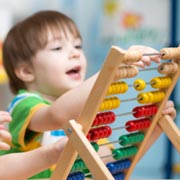 As we have seen in this article, play benefits children in a completely holistic way. Play enhances their lives through a multitude of benefits that include improved skills and abilities, a deeper understanding of the world and society, solid friendships and the myriad of opportunities that all of that will bring. Play also fosters a deeper love of learning, because play makes learning enjoyable. Indeed, through play, children explore, discover, and learn instinctively — with zero ‘friction’. As such, play should be at the very core of every child’s learning and development journey.
As we have seen in this article, play benefits children in a completely holistic way. Play enhances their lives through a multitude of benefits that include improved skills and abilities, a deeper understanding of the world and society, solid friendships and the myriad of opportunities that all of that will bring. Play also fosters a deeper love of learning, because play makes learning enjoyable. Indeed, through play, children explore, discover, and learn instinctively — with zero ‘friction’. As such, play should be at the very core of every child’s learning and development journey.
Learning Through Play at Little Acorns Nursery, Hindley Green

 Settings like Little Acorns Nursery in Hindley Green understand well the importance of play in the early years. That’s why we encourage children under five to learn through play in our childcare setting. At Little Acorns, we ensure babies, toddlers and preschoolers have all the equipment, tools, resources and spaces to nurture exploration, experimentation, natural discovery and instinctive learning through play opportunities. Well-trained and experienced early years practitioners at the setting will help little ones to make the most of these learning opportunities, guiding them when necessary and employing both structured and unstructured play activities. Learning goals, tailored to each child, are all part of this too, as are continuous assessments to ensure every child is on track to reach personal bests in every area of their learning and development. In this way, every child at Little Acorns Nursery is set up to absolutely thrive.
Settings like Little Acorns Nursery in Hindley Green understand well the importance of play in the early years. That’s why we encourage children under five to learn through play in our childcare setting. At Little Acorns, we ensure babies, toddlers and preschoolers have all the equipment, tools, resources and spaces to nurture exploration, experimentation, natural discovery and instinctive learning through play opportunities. Well-trained and experienced early years practitioners at the setting will help little ones to make the most of these learning opportunities, guiding them when necessary and employing both structured and unstructured play activities. Learning goals, tailored to each child, are all part of this too, as are continuous assessments to ensure every child is on track to reach personal bests in every area of their learning and development. In this way, every child at Little Acorns Nursery is set up to absolutely thrive.
To explore a possible nursery place for your child at Little Acorns Nursery in Hindley Green, please get in touch using one or more of the following options:
We are a first-class nursery & preschool in Hindley Green, near Wigan, and may also suit families nearby in Bickershaw, Leigh, Atherton, Westhoughton, Ince-in-Makerfield, Platt Bridge, Tyldesley, Bolton and Greater Manchester.


